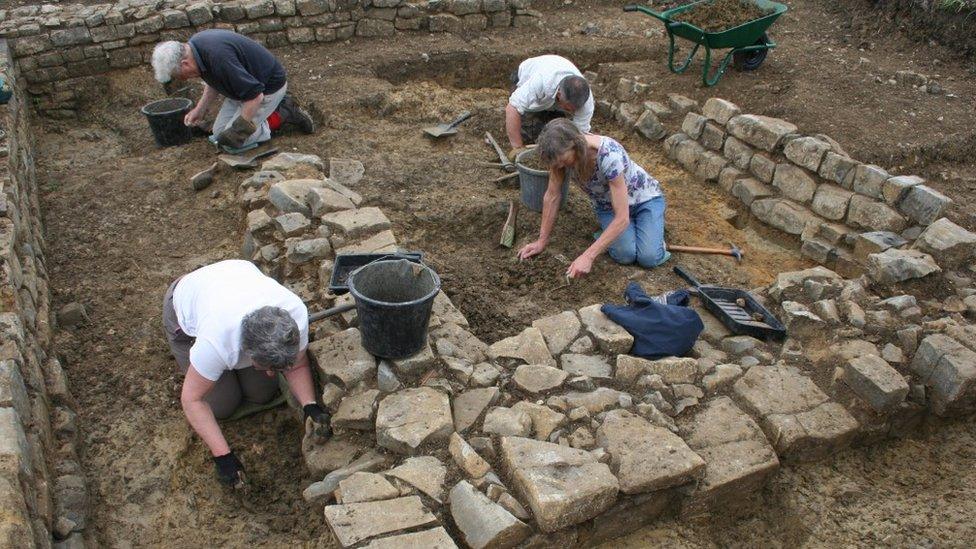Saxon workshop evidence found by amateur archaeologists in Somerset
- Published
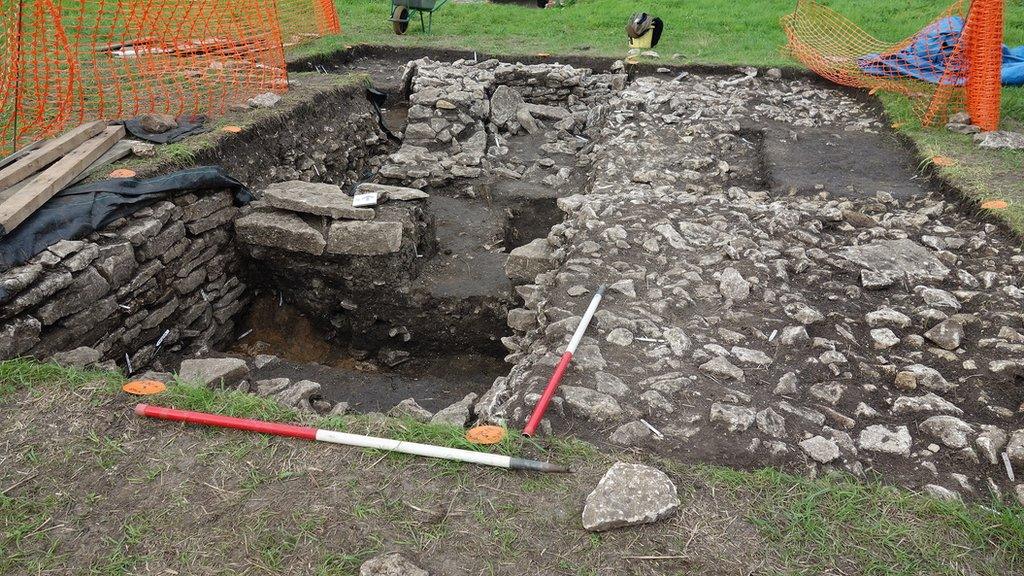
The foundations were uncovered along with a large Norman building, at an undisclosed location on the Mendip Hills
Amateur archaeologists have unearthed what is believed to be a Saxon workshop in a dig in Somerset.
The foundations were uncovered along with a large Norman building at an undisclosed location on the Mendip Hills.
Saxon keys and a 13th Century jug were also among the finds.
Project leader Pip Osborne, said: "There's no written record of a building here but ever since I moved here I've been intrigued by the field."
'Had a hunch'
The find was made by a community archaeology group on a plot of land near the centre of a Mendip village.
The land, according to Ms Osborne, was given to the Abbey of Jumieges in Normandy in France by William the Conqueror in about 1080.
"I had a hunch about this empty field. I ran the machines over it and there was an image of something quite strong on the geophysics and I thought this has to be investigated," she said.
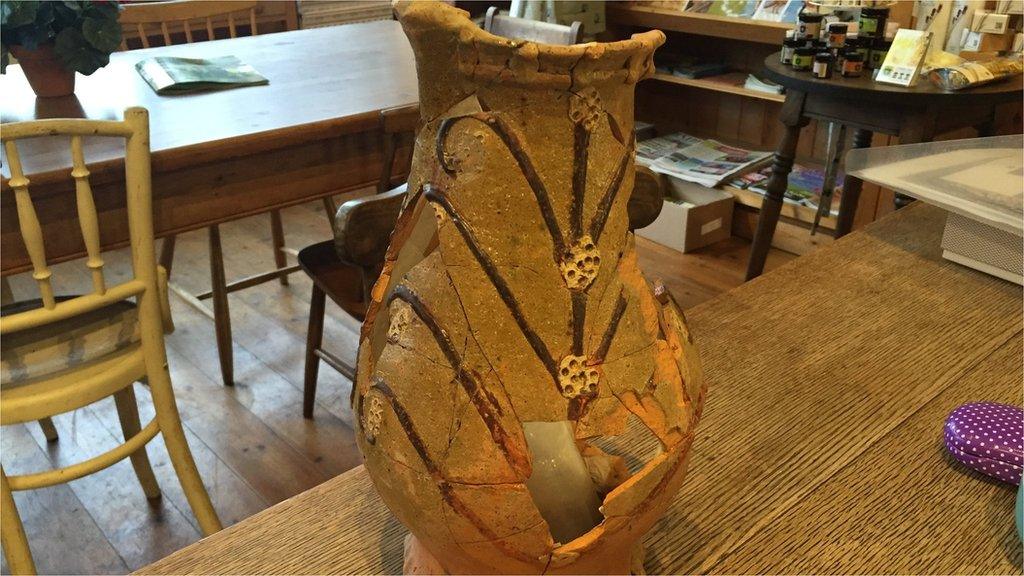
Pot shards of a glazed 13th century jug were among the finds
Beneath a 35m (114 ft) building, which was believed to have been erected "just after the Norman conquest", the archaeologists found a thick black soil containing industrial waste.
It was within this "black ashy soil" that crucible fragments and artefacts suggesting "some kind of furnace" or a "Saxon forge" were found.
"The furnace maybe was to do with glass manufacture or recycling," said Ms Osborne.
"But whatever they were doing here was in small quantities."
The Anglo-Saxon period lasted about 600 years from the 5th Century to the Norman invasion of 1066.
The purpose of the Norman building has not yet been established but it is thought it could have been agricultural.
- Published5 December 2016
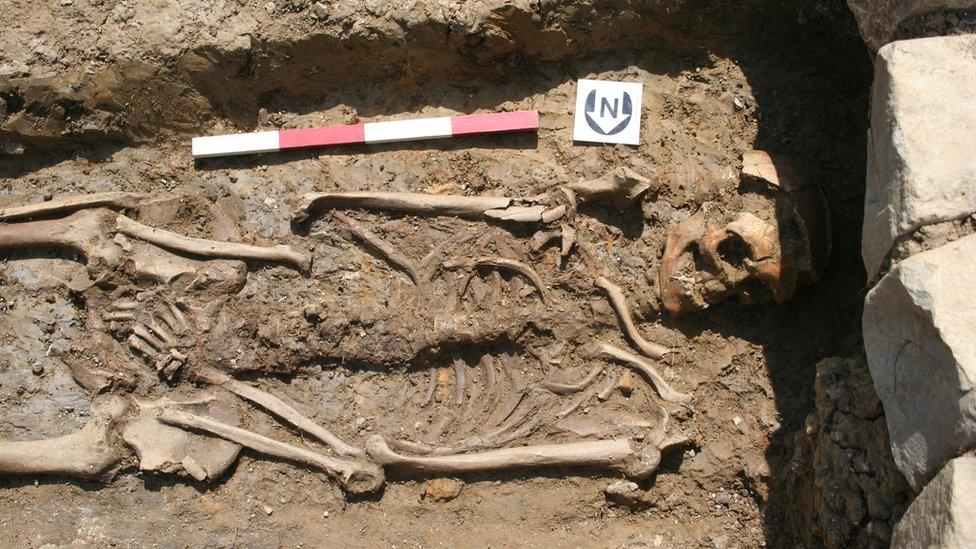
- Published31 October 2016
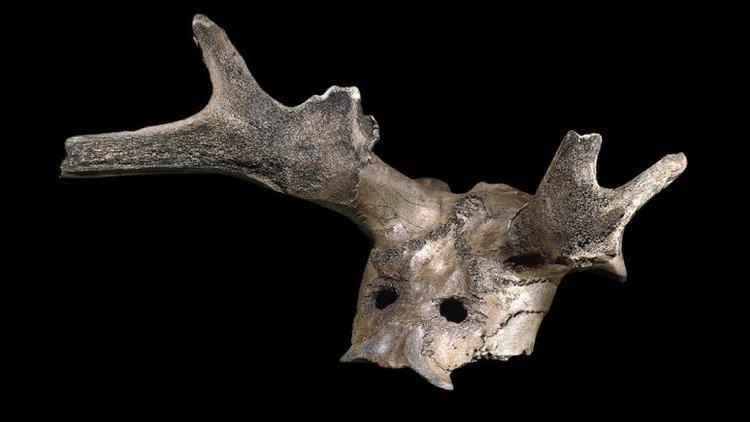
- Published22 May 2016
